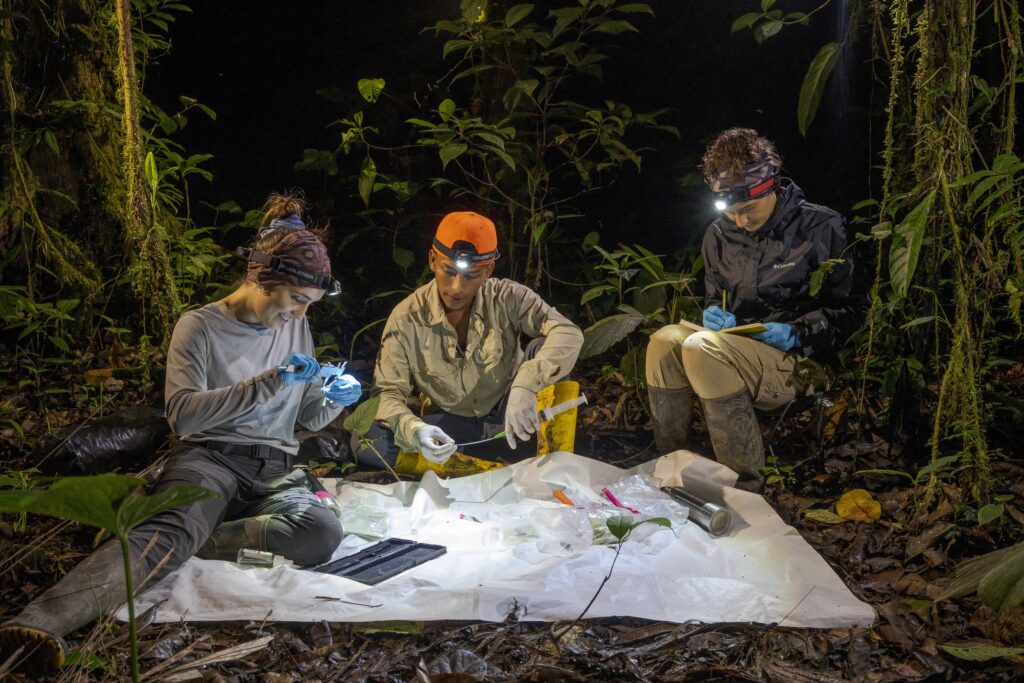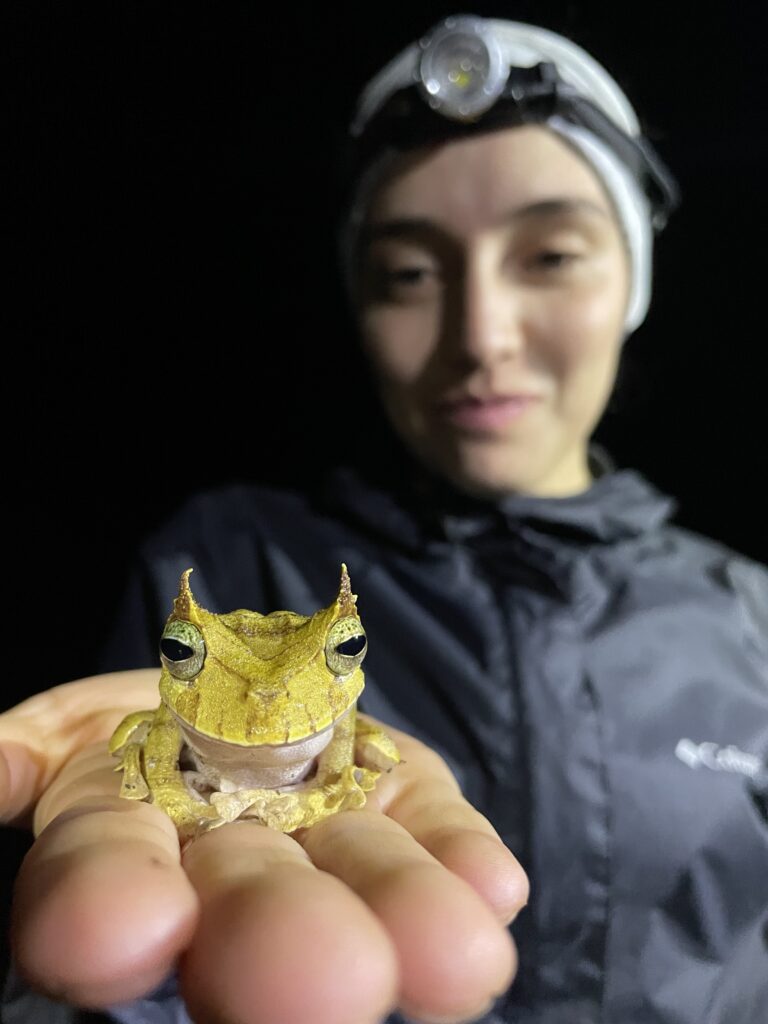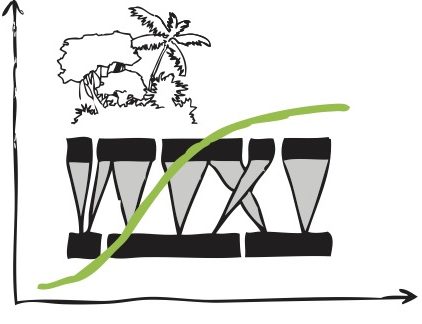I realized I would study frogs only when I turned 20. During a field trip to the Ecuadorian rainforest, I heard the call of a frog perched on a branch over a river. After a long search, I finally spotted one of the most breathtaking creatures—a glass frog. Since then, I have dedicated myself to studying frogs, a fascinating group of vertebrates that serve as excellent models for understanding ecological processes, especially in Ecuador, where their diversity is incredibly high. During my biology degree, I researched the impacts of habitat fragmentation on rain frog communities in southern Ecuador. Later, I worked on the taxonomy and biology of West African frogs, contributing to the description of two new species.
Now, as part of the REASSEMBLY project, my goal is to understand the regeneration of leaf-litter frog communities as forests recover. My research provides an in-depth examination of both taxonomic and functional diversity, as well as interaction networks. I aim to determine how the richness, diversity, and composition of leaf-litter frogs change following disturbance and whether they can recover. Additionally, I will focus on specific traits to investigate the functional diversity of leaf-litter frogs, an area that has not been extensively studied in amphibians compared to other vertebrate groups. Finally, I will analyze the disassembly and reassembly of prey-predator networks between frogs and the arthropods that make up their diet across a chronosequence.
For me, this project represents a shift in perspective; rather than focusing on habitat destruction, we seek to reveal the potential for ecosystem regeneration.

Karla, Leo, and Arianna processing frogs in the field. Photo: Javier Aznar


